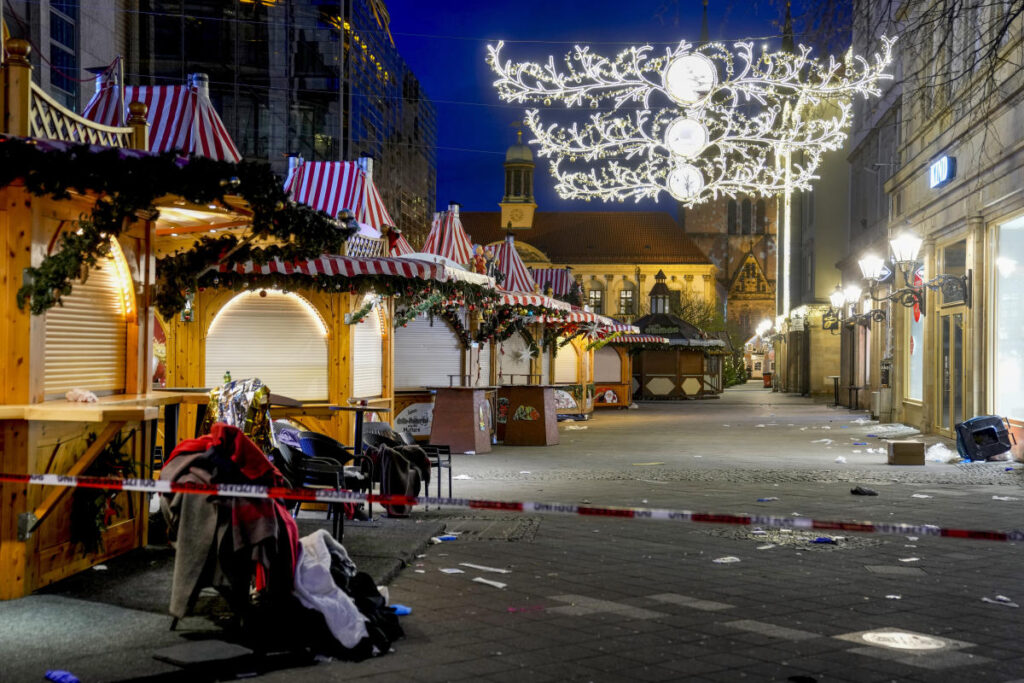On a tragic Friday night in Magdeburg, Germany, a horrific incident at a Christmas market resulted in the deaths of five people, among them a 9-year-old child, and left nearly 200 others injured. As the news broke, the sense of security in the city and beyond was deeply shaken. City official Ronni Krug reported the grim toll, indicating that 41 of the injured were in serious or critical condition. Witnesses described chilling scenes of chaos and terror as a car sped through the market, leading to widespread panic and horror among the holiday shoppers.
The attacker, identified as Taleb A., a 50-year-old Saudi doctor living in Germany since 2006, has since come under investigation on multiple serious charges, including murder and attempted murder. Taleb’s background reveals a complicated identity; he is a psychiatrist by profession, yet he had a controversial online presence filled with anti-Islam sentiment. His social media activity reflected a deep dissatisfaction with German authorities and their handling of issues concerning Saudi refugees. A complex figure, he had been described by some as an activist who sought to assist Saudi women in escaping their home country.
The attack’s unfolding left many questions unanswered, particularly regarding the motivation behind Taleb’s actions. While prosecutors have suggested that his motives could be linked to perceived mistreatment of Saudi refugees in Germany, it remains unclear what specifically instigated such a violent outburst. Investigators are currently analyzing evidence from computers and mobile devices found at the scene to elucidate the reasons behind this tragic event. The ongoing investigation aims to piece together the events leading to the attack and to understand Taleb’s psychological state at the time.
The incident caused immediate ripple effects in Germany, with many towns opting to cancel their Christmas markets in solidarity with Magdeburg and to enhance public safety. In Berlin, market activities continued, but police presence was significantly increased to reassure the public. This attack has reignited fears surrounding Christmas market safety, especially in light of a series of extremist attacks in the recent past, which have prompted heightened security measures across cities in Germany.
The Magdeburg tragedy is especially reminiscent of the 2016 Berlin Christmas market attack, in which an Islamic extremist drove a truck into a crowded market, resulting in the deaths of 13 people and numerous injuries. Such recurrent violence at public gatherings has bred a climate of fear and caution, as cities grapple with the challenge of ensuring safety during festive occasions. The stark reality of extremist violence has underscored a pressing need for thorough investigations and community resilience in the wake of such traumatic incidents.
As the investigation continues and the community mourns, there remains a collective hope for answers that could not only provide some clarity about the motive behind this attack but also foster a renewed discussion on safety, tolerance, and the role of mental health in preventing future acts of violence. The sorrow of the victims’ families and the precariousness of public safety stand as urgent reminders of the complex societal issues faced today that require thoughtful and compassionate discourse in order to heal and protect communities.

